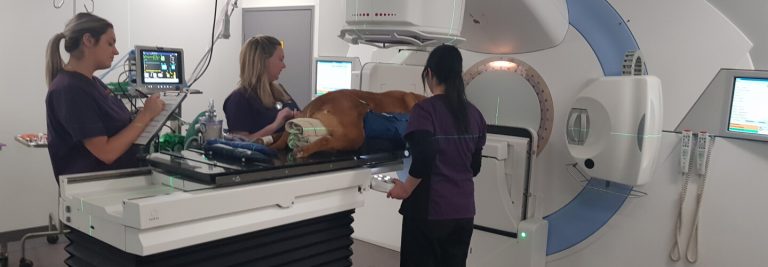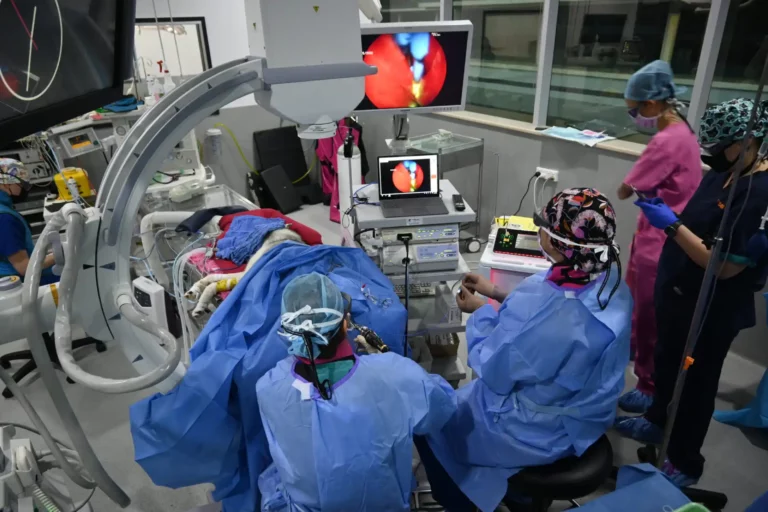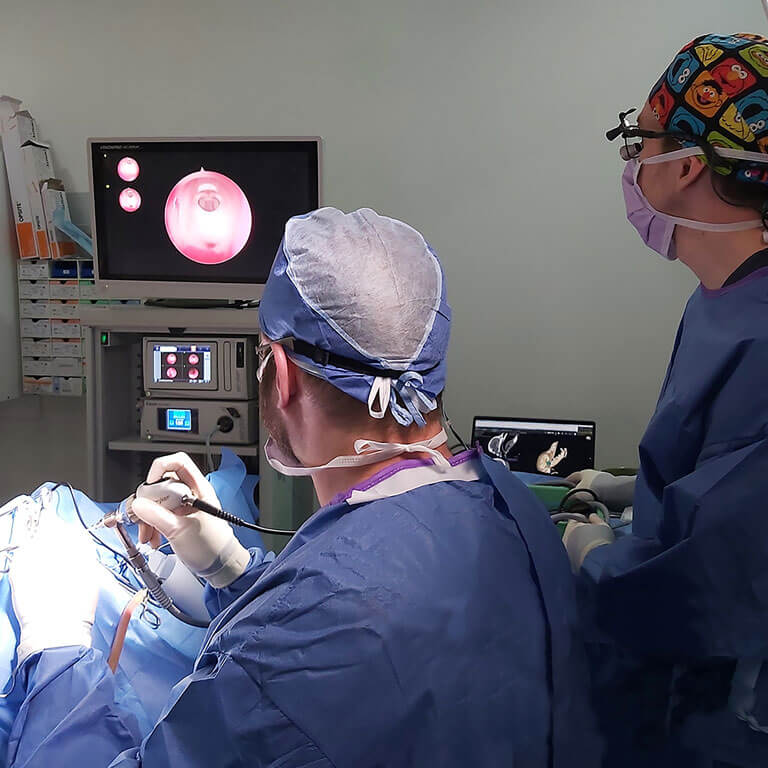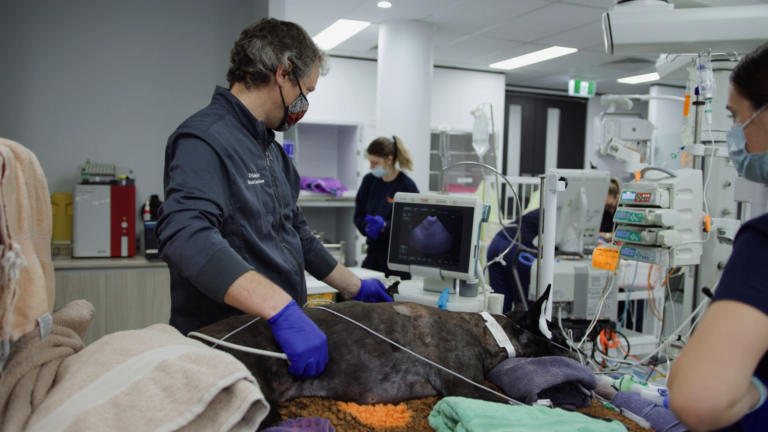By : Cheryl A. London, Luis Feo Bernabe, Sandra Barnard, William C. Kisseberth, Antonella Borgatti, Mike Henson, Heather Wilson, Kiersten Jensen, Daisuke Ito, Jaime F. Modiano, Misty D. Bear, Michael L. Pennell, Jean-Richard Saint-Martin, Dilara McCauley, Michael Kauffman, Sharon Shacham
Background
The purpose of this study was to evaluate the activity of Selective Inhibitors of Nuclear Export (SINE) compounds that inhibit the function of the nuclear export protein Exportin 1 (XPO1/CRM1) against canine tumor cell lines and perform a Phase I clinical trial of KPT-335 in dogs with spontaneous cancer to provide a preliminary assessment of biologic activity and tolerability.
Methods And Findings
Canine tumor cell lines derived from non-Hodgkin lymphoma (NHL), mast cell tumor, melanoma and osteosarcoma exhibited growth inhibition and apoptosis in response to nanomolar concentrations of SINE compounds; NHL cells were particularly sensitive with IC50 concentrations ranging from 2–42 nM. Phase I clinical trial of KPT-335 was performed in 17 dogs with NHL (naive or relapsed), mast cell tumor or osteosarcoma. The maximum tolerated dose was 1.75 mg/kg given orally twice/week (Monday/Thursday) although biologic activity was observed at 1 mg/kg. Clinical benefit (CB) including partial response to therapy (PR, n = 2) and stable disease (SD, n = 7) was observed in 9/14 dogs with NHL with a median time to progression (TTP) for responders of 66 days (range 35–256 days). A dose expansion study was performed in 6 dogs with NHL given 1.5 mg/kg KPT-335 Monday/Wednesday/Friday; CB was observed in 4/6 dogs with a median TTP for responders of 83 days (range 35–354 days). Toxicities were primarily gastrointestinal consisting of anorexia, weight loss, vomiting and diarrhea and were manageable with supportive care, dose modulation and administration of low dose prednisone; hepatotoxicity, anorexia and weight loss were the dose limiting toxicities.
Conclusions
This study provides evidence that the novel orally bioavailable XPO1 inhibitor KPT-335 is safe and exhibits activity in a relevant, spontaneous large animal model of cancer. Data from this study provides critical new information that lays the groundwork for evaluation of SINE compounds in human cancer.




